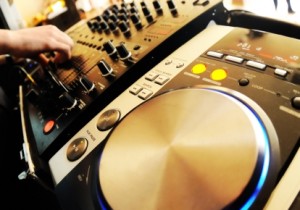 The Purpose of the Agreement
The Purpose of the Agreement
Whether considering wedding DJs sound tracking a couple’s first dance at a reception or a club DJ entertaining a crowded and sweaty club (or anywhere in between), DJs usually sign on to perform at one event and then get the rest of their work elsewhere. (This, of course, is not true for club DJs signed to do a specific number of shows at a club or a DJ contracted to work any event held at a specific location—these gigs can obviously lead to long-term paying gigs).
But when all a DJ’s gigs are one-offs, signing a DJ Contract is extremely important in guaranteeing the DJ will get all the fees owed to him or her in a timely and agreed upon manner. Additionally, the DJ contract will stipulate exactly what will happen if and when unforeseen circumstances arise that postpone or cancel an event. (Conversely, these contracts also protect the purchaser of the DJ’s services in the case that the DJ doesn’t arrive at a planned appearance).
All of this is to say that a DJ contract, like any contract signed in the music industry, is extremely important for every party involved. At times, having a well-written and agreed upon contract in place can protect the entire career of a DJ.
The Contents of the Agreement
Because of the varied venues DJs will perform, contracts will vary widely from DJ to DJ and event to event. Here we’ll look at standards clauses that will be included in nearly every DJ contract.
Performance Time and Date
This is an obvious clause that will be included in every DJ Contract (most likely as the first clause after the naming of the parties involved). What may not be obvious is how clear these need to be stated. The entire address must be legibly printed (or typed, preferably) in the contract. Confusion between, say, 123 Main Street and 123 Main Road could lead to disaster. Additionally, the time should be clearly stated. This includes not only with the DJ performance times, but also setup time. Too many cases of confusion on either the part of the DJ or the purchaser about these simple details have caused weddings to be ruined, clubs to lose massive amounts of money and other avoidable events.
Rates
Some DJs charge a per hour fee for work, while some will charge per event. Often, this will vary depending on the event and the purchaser. However a DJ charges, it must be clearly stated in the section of the contract not only how much the DJ will be paid, but also when they will be paid. Usually, this section also will include a note that a deposit must be paid prior to the event.
Terms of the Agreement
In this section, the contract will go further to state exactly what duties are expected of the DJ throughout the course of the event. This will be broken into the following sections:
Music. The type of music expected to be played at the event, and how that music will be performed (i.e. via turntable and/or computer, etc.)
Equipment. The contract will specifically state what, if any, equipment will be provided and what the DJ must furnish.
Cancellation Policy. Usually this will consist of a minimum number of days the purchaser has to cancel the DJ’s services without having to pay for the services in full (without the presence of accidents, acts of God, strikes, etc). This will usually state that the deposit itself is non-refundable.
Liability. The DJ will state that he or she is not responsible for any actions arising from event attendees not directly associated with the DJ.
Workspace. The DJ will specify exactly what kind of work environment is required for services. This will usually include a minimum amount of space as well as ample power supplies in proximity to that space. Occasionally this will include security measures that must be enacted.
Disagreements. Since the DJ contract is a signed, legal document, it will state that any disputes that arise outside the boundaries of the contract should attempt to be settled between the parties involved before further legal action is taken.
Lastly, the contact most likely will have a space for either party to include other specific provisions and services to be included in a performance. As with any aspect of the music industry, DJ contracts serve to protect the rights of both parties, and can play an integral role in making DJing a lucrative career.



